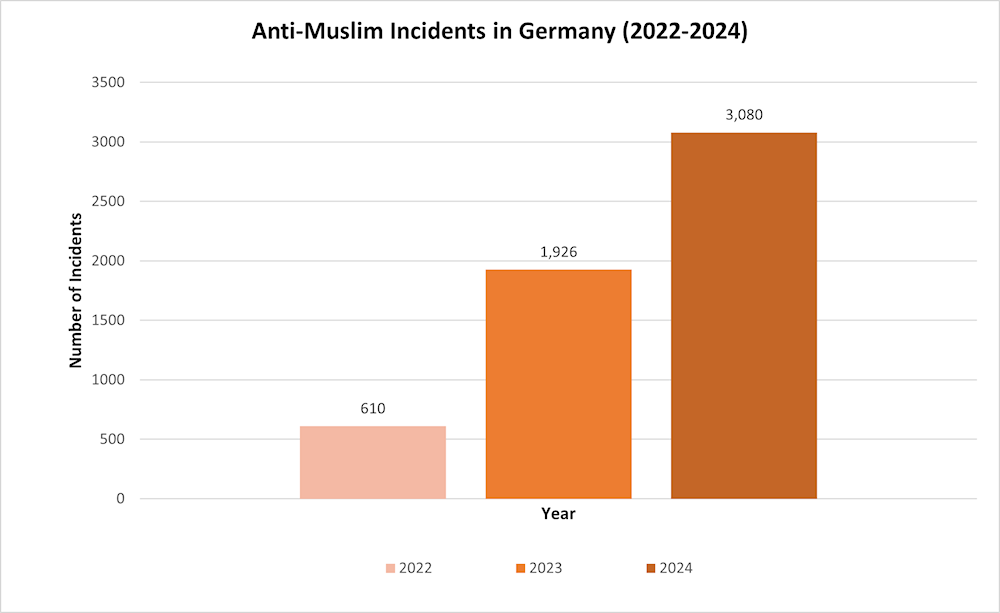Murder of Algerian nurse in Germany sparks outcry, demands for justice
The fatal stabbing of 26-year-old Algerian nursing trainee Rahma Ayad in Hanover has ignited protests and diplomatic pressure amid rising hate crimes and Islamophobia in Germany.
-

Algerian national Rahma Ayad, seen in her nursing scrubs
The murder of Rahma Ayad, a 26-year-old Algerian nursing trainee, has sparked outrage across Germany and the broader Algerian community. As details emerged about the attack and Rahma’s prior complaints of harassment, many are calling for her death to be recognized as a racially motivated attack amid growing concerns over Islamophobia in Europe.
Rahma Ayad was fatally stabbed on the morning of July 4 in the stairwell of her apartment building in Arnum, south of Hanover. According to eyewitnesses, neighbours heard her cries and alerted authorities. She was found with multiple stab wounds to her chest and shoulder and died shortly after emergency services arrived.
German police arrested a 31-year-old man who lived in the same building. He remains in custody, although no formal charges have been filed and the motive has not yet been officially confirmed.
A racially motivated murder
According to media reports, Rahma’s mother confirmed that her daughter felt unsafe due to the neighbour’s behaviour, which included verbal abuse tied to her visible Muslim identity. Activists also noted that the same man had previously made offensive comments toward her, raising further concern that her killing may constitute a hate crime.
Vigils and demonstrations have since been held in multiple German cities, with protestors demanding that Rahma’s murder be investigated not as an isolated act of violence, but within the broader framework of hate crimes in Germany.
Germany, the epicenter of anti-Muslim hate crimes in Europe
Civil society groups have warned that Rahma’s case is emblematic of a broader surge in anti-Muslim sentiment across Germany. According to CLAIM, an alliance monitoring Islamophobia and anti-Muslim hate, incidents more than tripled from 898 in 2022 to 3,080 in 2024, a 243% increase. Notably, 71% of individual victims were women, especially those wearing hijab.
In Berlin alone, anti-Muslim incidents rose by nearly 70% in 2024. October 2023, the onset of the Israeli war on Gaza, is widely cited as a turning point that triggered a wave of Islamophobia in Europe, with Germany at the epicenter of this alarming rise.
-

Bar chart showing the number of anti-Muslim hate crimes in Germany in the years 2022-2024
Islamophobic crimes soar across the West
The rise in anti-Muslim hate is not unique to Germany. Across Western countries, civil society organizations and human rights groups have documented a dramatic escalation in hate crimes targeting Muslims and Arabs over the past two years.
In the United Kingdom, more than 4,900 Islamophobic incidents were recorded between October 2023 and September 2024, over three times the number from the previous year. Online hate speech surged by more than 1,600% in the immediate aftermath of the war on Gaza.
Austria registered the highest per-capita discrimination rates among EU member states, with 71% of Muslims reporting that they had been targeted.
Meanwhile, in North America, the Council on American-Islamic Relations (CAIR) received over 8,600 complaints of anti-Muslim and anti-Arab incidents in 2024. In Canada, Islamophobic and anti-Palestinian incidents rose by 1,300% in the final quarter of 2023 alone.
Algerian officials demand justice and accountability
In response to the killing, Algerian Secretary of State for National Community Abroad Sofiane Chaib met with the German ambassador in Algiers, calling Rahma’s murder a "heinous crime" and urging German authorities to ensure justice and increase protection for Algerians residing in the country.
The Algerian consulate in Germany announced it would cover the costs of repatriating Rahma’s body to Oran, where she will be laid to rest.
The calls for justice for Rahma Ayad have grown louder, with activists insisting that her death be acknowledged not only as a personal tragedy but as part of a systemic issue, one demanding urgent institutional and societal reckoning.

 4 Min Read
4 Min Read








